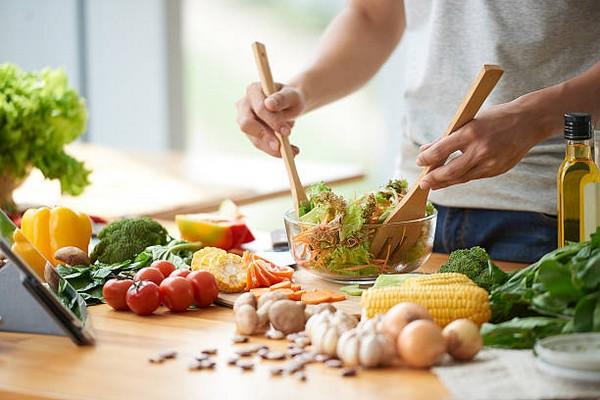Achieving a balanced diet is essential for overall health and fitness. Whether you’re aiming to lose weight, build muscle, or simply maintain a healthy lifestyle, incorporating high protein, low-calorie foods into your diet can be a game changer. This article explores various options, their benefits, and how to integrate them into your daily meals.
What Are High Protein, Low-Calorie Foods?
High protein, low-calorie foods are those that provide a significant amount of protein per serving while being relatively low in calories. Protein is a vital macronutrient necessary for muscle repair, growth, and overall bodily functions. Consuming foods high in protein can also aid in weight management by promoting satiety and reducing overall calorie intake.
Benefits of High Protein, Low-Calorie Foods
Supports Muscle Growth and Repair
Protein is the building block of muscles. Consuming adequate amounts ensures that your body can repair and grow muscle tissue, especially after exercise.
Aids in Weight Loss
High protein foods promote a feeling of fullness, reducing the likelihood of overeating. This can help in maintaining a caloric deficit, which is crucial for weight loss.
Boosts Metabolism
Protein has a higher thermic effect compared to fats and carbohydrates, meaning your body burns more calories digesting protein. This can contribute to a higher overall metabolic rate.
Maintains Lean Muscle Mass
During weight loss, it’s important to preserve lean muscle mass. High protein intake helps maintain muscle mass, ensuring that most of the weight loss comes from fat.
Top High Protein, Low-Calorie Foods
Chicken Breast
Chicken breast is a lean source of protein that is low in calories and fat. A 3-ounce serving contains about 26 grams of protein and only 142 calories.
Greek Yogurt
Greek yogurt is rich in protein and probiotics. A typical serving provides around 10 grams of protein and 100 calories.
Egg Whites
Egg whites are an excellent low-calorie source of protein. One large egg white contains approximately 3.6 grams of protein and only 17 calories.
Cottage Cheese
Cottage cheese is a versatile dairy product that is high in protein. One cup of low-fat cottage cheese offers about 27 grams of protein and 206 calories.
Tuna
Tuna is a lean fish that is packed with protein. A 3-ounce serving of canned tuna in water contains about 20 grams of protein and 90 calories.
Lentils
Lentils are a plant-based protein source. One cup of cooked lentils contains about 18 grams of protein and 230 calories.
Tofu
Tofu is a popular protein source for vegetarians and vegans. A 3-ounce serving contains around 8 grams of protein and 70 calories.
Shrimp
Shrimp is a low-calorie seafood option. A 3-ounce serving provides 20 grams of protein and only 84 calories.
Quinoa
Quinoa is a complete protein source, meaning it contains all nine essential amino acids. One cup of cooked quinoa offers 8 grams of protein and 222 calories.
Spinach
While not particularly high in protein, spinach is low in calories and can be combined with other high-protein foods. One cup of cooked spinach contains about 5 grams of protein and 41 calories.
See Also: What Has Carbs But No Calories
Integrating High Protein, Low-Calorie Foods Into Your Diet
Breakfast Ideas
Greek Yogurt with Berries: Combine a serving of Greek yogurt with fresh berries for a nutritious start to your day.
Egg White Omelet: Make an omelet with egg whites, spinach, and mushrooms for a protein-packed breakfast.
Lunch Ideas
Grilled Chicken Salad: Mix grilled chicken breast with a variety of vegetables and a light vinaigrette.
Tuna Salad: Combine canned tuna with lettuce, tomatoes, cucumbers, and a squeeze of lemon juice.
Dinner Ideas
Baked Tofu with Vegetables: Bake tofu with your favorite vegetables and a sprinkle of soy sauce.
Shrimp Stir-Fry: Stir-fry shrimp with bell peppers, broccoli, and a touch of garlic.
Snack Ideas
Cottage Cheese with Pineapple: Mix cottage cheese with pineapple chunks for a sweet and savory snack.
Protein Smoothie: Blend Greek yogurt with spinach, a banana, and a scoop of protein powder.
Meal Planning Tips
Prepare in Advance
Planning and preparing your meals in advance can help you stay on track with your dietary goals. Cook larger portions and store them in the refrigerator for easy access throughout the week.
Balance Your Plate
Ensure that each meal contains a balance of protein, carbohydrates, and healthy fats. This will provide sustained energy and keep you feeling full.
Use Herbs and Spices
Enhance the flavor of your meals with herbs and spices instead of relying on high-calorie sauces and dressings.
FAQs About High Protein, Low-Calorie Foods
How Much Protein Do I Need Daily?
The recommended dietary allowance (RDA) for protein is 0.8 grams per kilogram of body weight. However, individuals who are highly active or looking to build muscle may need more.
Can High Protein Diets Cause Kidney Damage?
There is no conclusive evidence that high protein diets cause kidney damage in healthy individuals. However, those with pre-existing kidney conditions should consult with a healthcare professional.
What Are the Best Plant-Based Protein Sources?
Great plant-based protein sources include lentils, quinoa, tofu, chickpeas, and edamame.
Are Protein Supplements Necessary?
Protein supplements can be convenient, but they are not necessary if you can meet your protein needs through whole foods.
Can I Eat High Protein, Low-Calorie Foods Every Day?
Yes, incorporating high protein, low-calorie foods into your daily diet can be beneficial for overall health and fitness.
Conclusion
Incorporating high protein, low-calorie foods into your diet can significantly benefit your health, whether you’re looking to lose weight, build muscle, or maintain a healthy lifestyle. By understanding the benefits and knowing which foods to choose, you can make informed decisions that align with your dietary goals. Remember to balance your meals, prepare in advance, and enjoy the variety of delicious options available.


